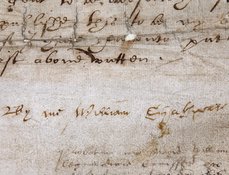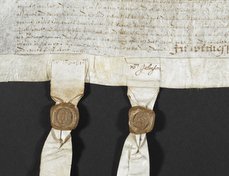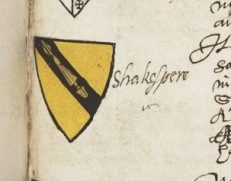An abundance of administrative documents provide important details of Shakespeare's economic and social status. Shakespeare divided his time between his theatrical career in London, and business and personal matters in Stratford-upon-Avon, the town where he was born, grew up, and raised three children with his wife Anne: Hamnet (who died when he was 11), Judith, and Susanna. Documents from Stratford-upon-Avon's corporate archives illustrate his Stratfordian connections and the constant balancing of debt and credit among its more prominent citizens. The parish register of Holy Trinity Church records the baptisms, marriages, and burials of members of his family. Paperwork created by various courts provide details relating to real estate transactions, taxes, legal cases, and his social network at the time of his death. Records preserved by the College of Arms chronicle his father's application for a coat of arms in 1596 and the subsequent debate over its validity. Various other legal and financial records which mention Shakespeare or his family reflect the work flows of a wide range of highly organized administrative bodies in early modern England.
Shakespeare's personal papers do not survive, which is frustrating but not surprising. In general, personal papers only survive if they are absorbed into institutional archives or if they suffered from benign neglect in the muniment rooms of noble houses. Shakespeare's last direct descendant died in 1670, at which point his house, New Place, and its belongings, was sold. It wasn't until the 18th century that people began to value and romanticize the manuscripts of famous authors.


















